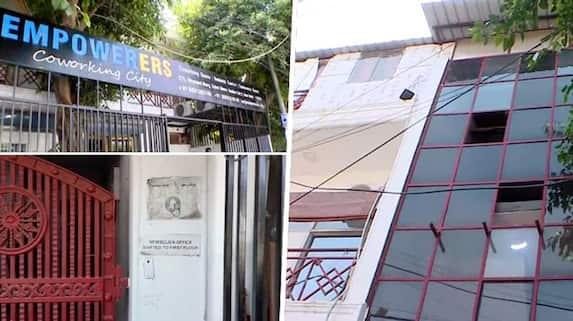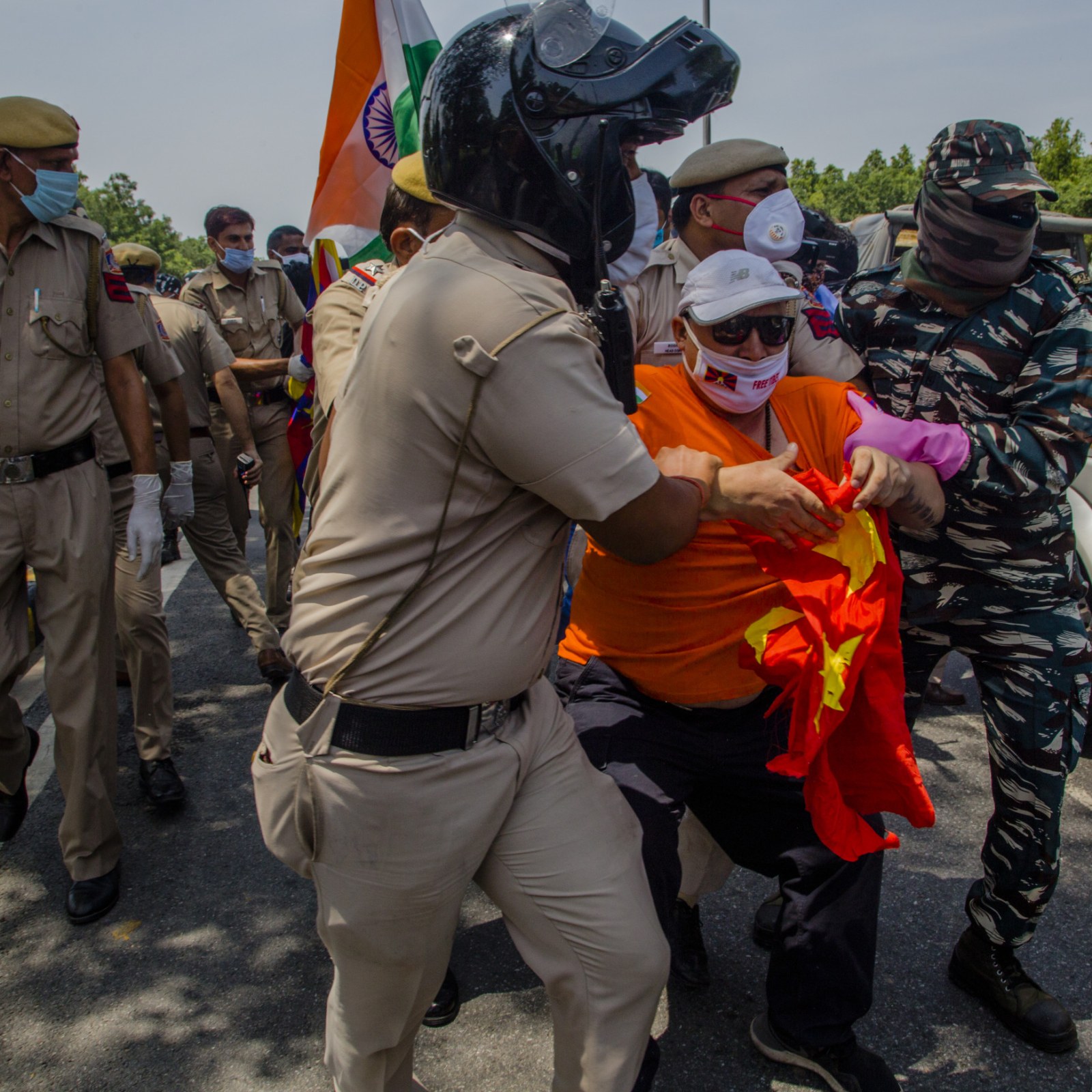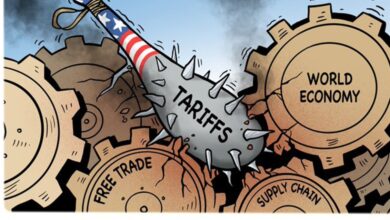NewsClick Office Sealed in Delhi Amid Raids Over Alleged China Funding Controversy

NewsClick Office Sealed in Delhi Amid Raids Over Alleged China Funding Controversy
In a significant turn of events, a special cell of the Delhi Police took action on Tuesday by sealing the office of the online news portal NewsClick, alongside conducting searches at approximately 30 locations associated with the portal and its journalists. These investigative actions stem from a case filed under the stringent anti-terror law, the Unlawful Activities (Prevention) Act (UAPA). The case revolves around allegations that NewsClick had received funds for purportedly propagating pro-China content. Prior to this, the Enforcement Directorate had also conducted raids at the premises of the said news portal.
The sealing of NewsClick’s office and the subsequent raids have sent shockwaves through the media landscape, sparking debates about press freedom, financial transparency, and foreign influence in Indian journalism.
The operation, spearheaded by the Delhi Police’s special cell, unfolded as a dramatic development in the ongoing investigation into NewsClick’s financial affairs. Allegations against the news portal emerged, claiming that it had received funding with links to China, raising concerns about potential foreign influence on Indian media.
The Unlawful Activities (Prevention) Act, often referred to as UAPA, is a stringent law in India designed to combat terrorism and unlawful activities. It empowers law enforcement agencies to take strict measures against individuals or organizations that are suspected of promoting or supporting terrorism or activities that threaten the sovereignty and integrity of the nation. The application of UAPA in this case underscores the gravity of the allegations against NewsClick.

The Enforcement Directorate’s earlier raids on NewsClick’s premises added another layer to this complex investigation. The Enforcement Directorate is a government agency tasked with enforcing economic laws and fighting economic crimes in India. Its involvement suggested that financial improprieties may be at the heart of the matter.
NewsClick, known for its investigative journalism and left-leaning editorial stance, has gained prominence over the years for its in-depth reporting on various socio-political issues. However, the recent controversy has cast a shadow over its credibility and independence.
The sealing of NewsClick’s office has ignited a fierce debate about the boundaries of press freedom in India. Journalists and media organizations across the country have expressed concerns that such actions could have a chilling effect on journalism, potentially discouraging critical reporting and investigative journalism.
It’s important to note that press freedom is a cornerstone of any vibrant democracy, and India is no exception. The ability of the media to operate independently and hold those in power accountable is essential for a healthy democratic society. Any restrictions on press freedom, even in the name of national security, must be handled with utmost caution and transparency to ensure that legitimate concerns are addressed without stifling free and responsible journalism.

The allegations of receiving funds for pro-China propaganda have further fueled the debate over foreign influence in Indian media. Questions are being raised about the extent to which foreign entities can exert influence over the Indian media landscape. Striking a balance between maintaining the integrity of journalism and safeguarding national interests is a delicate task that policymakers and media watchdogs must address.
NewsClick, for its part, has maintained its innocence throughout the investigation. The news portal has consistently denied any wrongdoing and stated that it operates within the bounds of journalistic ethics and financial regulations. The outcome of the investigation will ultimately determine the veracity of these claims.
In the coming days and weeks, the sealed office and the evidence gathered during the raids will likely undergo thorough scrutiny. The investigative agencies will need to provide concrete evidence to substantiate the allegations made against NewsClick. At the same time, the news portal will have the opportunity to present its side of the story.
As the investigation unfolds, it is imperative to keep a watchful eye on the developments and ensure that the principles of justice, due process, and press freedom are upheld. The outcome of this case will undoubtedly have far-reaching implications for the state of media freedom and journalistic integrity in India. It serves as a reminder of the delicate balance that must be maintained between safeguarding national interests and preserving the watchdog role of a free and independent press.
The controversy surrounding NewsClick and its alleged ties to China funding also underscores the importance of financial transparency within the media industry. In an era where media organizations increasingly rely on various sources of funding, it is essential for these organizations to maintain transparency in their financial transactions. This not only safeguards the integrity of journalism but also ensures that there are no hidden agendas or undue influence from external entities.

The allegations against NewsClick serve as a cautionary tale for media outlets to rigorously scrutinize their sources of funding and adhere to the highest ethical standards. Media organizations must be proactive in disclosing their financial relationships and affiliations to maintain the trust of their readers and viewers.
Furthermore, this incident raises broader questions about the role of digital media in today’s information landscape. With the rise of online news portals and digital platforms, the boundaries of journalism and its responsibilities have evolved. As the digital space continues to democratize information dissemination, it becomes even more critical for media outlets to adhere to journalistic ethics and maintain their credibility.
In conclusion, the sealing of NewsClick’s office amid allegations of receiving funds for pro-China propaganda has ignited a multifaceted debate encompassing press freedom, financial transparency, and foreign influence in Indian journalism. The unfolding investigation and its eventual outcome will be closely watched by journalists, media organizations, and the public alike. As India’s democracy navigates these complex issues, it will be vital to strike a balance between preserving press freedom and addressing legitimate concerns about foreign influence and financial improprieties in the media sector. The resolution of this case will undoubtedly leave a lasting impact on the state of journalism and media integrity in the country.




